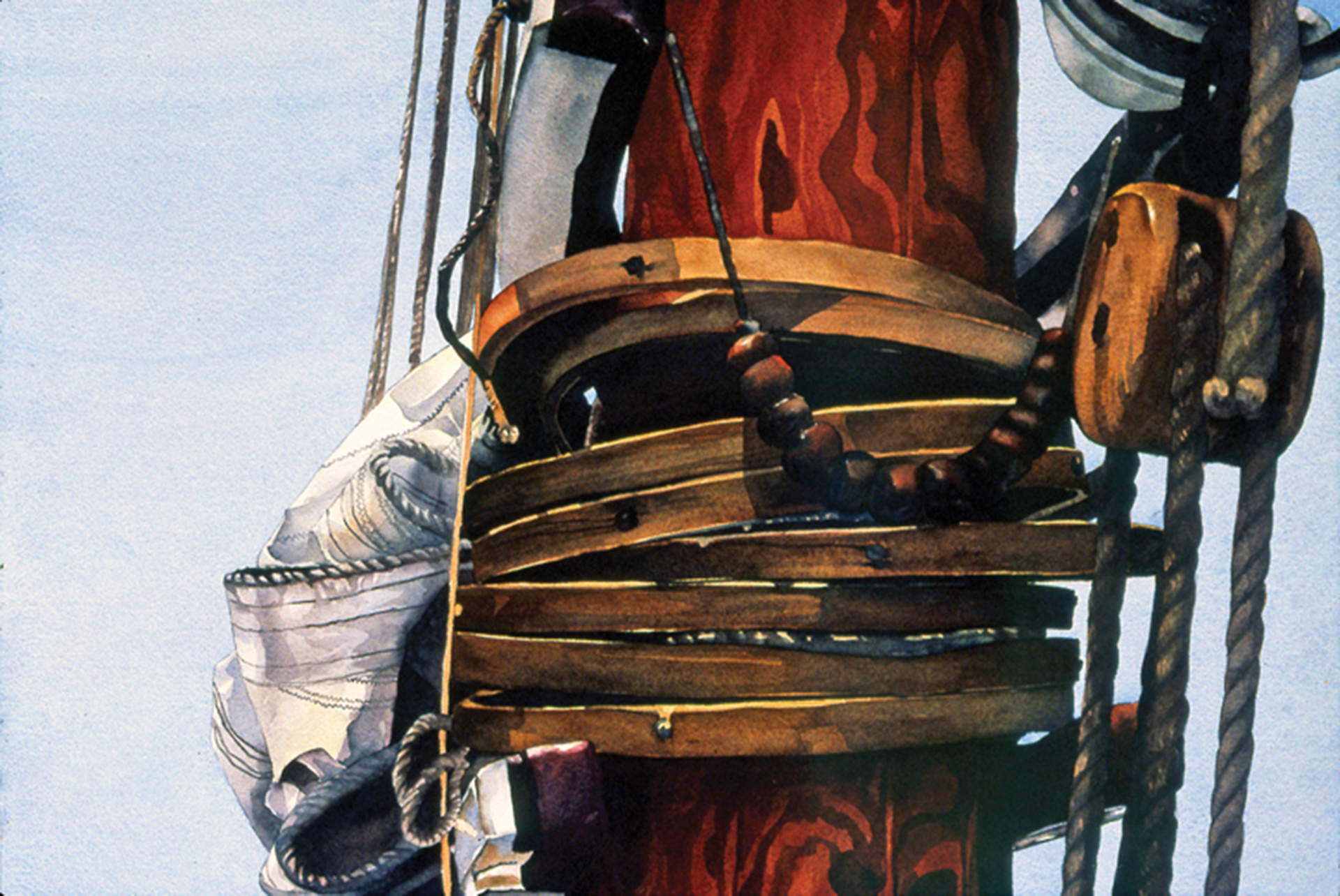Local Painter Wins Judgment


The relationship between an artist and her paintings is intense. They are her creations, conceived and nurtured, and the decision to sell one is heart rending.
That said, to lose the painting to a scammer is more painful. Miriam “Molly” Dougenis said she’s felt that pain for years, and gone through it numerous times.
“I almost had a nervous breakdown at the thought I’ll never see those paintings again,” she said.
Dougenis has been a fixture in the Sag Harbor art scene for decades, good enough to sell a dozen paintings through the art dealer Peter Marcelle, who owned several galleries over the years and sold scored of her paintings over the course of 20 years.
“I trusted him, I really did,” the artist said.
When she asked that some of her stock be returned in 2016, he suddenly balked.
“He kept making excuses,” Dougenis said.
In one case, regarding a watercolor she was particularly fond of, Marcelle said he had sent the piece out for a new frame. It never materialized again, despite numerous requests.
The cards were stacked against her and she knew it, but Dougenis hired an attorney, the first of three she would use, and began the arduous process of suing her art dealer.
Marcelle made it hard. He had done business under various names and entities, including Hampton Road Gallery, Peter Marcelle Gallery, and Peter Marcelle Project. He had addresses in Southampton and Sag Harbor.
Jordan Greenberger, of the Manhattan-based law firm of the same name, succeeded in bringing Marcelle to trial after three years of legal wrangling. Previously, the art dealer had argued that legal entities were responsible for the missing artwork, but that he was not liable personally.
Marcelle, in front of the honorable Judge Andrew Borrok inside Suffolk County Supreme Court, acknowledged “Whale and Vessel” and nine lithographs were among the works Dougenis had passed along to him that were unaccounted for.
The jury elected to award Dougenis $27,900 for nine missing payments plus attorney’s fees. Greenberger said forcing the guilty party to pay attorney’s fees was a key element under an Arts and Cultural Law statute, which “realizes there is an issue in the art world,” the attorney said.
Dougenis agreed it happens far too often.
“Our friends went to a dinner party and saw the painting of another friend on the wall,” she said. That painting, the artist was told, had been stolen from a gallery. Instead, it was apparently sold by the agent, who supposedly kept the proceeds.
“There is a private trust created between the dealer and the painter,” Greenberger said. “The dealer must hold the proceeds in trust.”
Dougenis and Greenberger must still recover the money Marcelle owes them, which could mean years of filing liens and going through the cumbersome system of restitution.
Marcelle, who said he was in the business 41 years before retiring, said he won’t comment on the Dougenis matter.
“What can I say?” Marcelle said. “You can’t wear Gucci shoes.”
rmurphy@indyeastend.com









